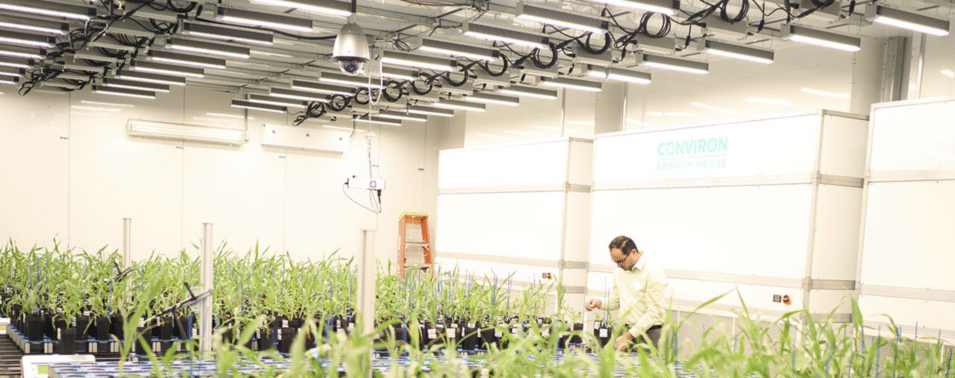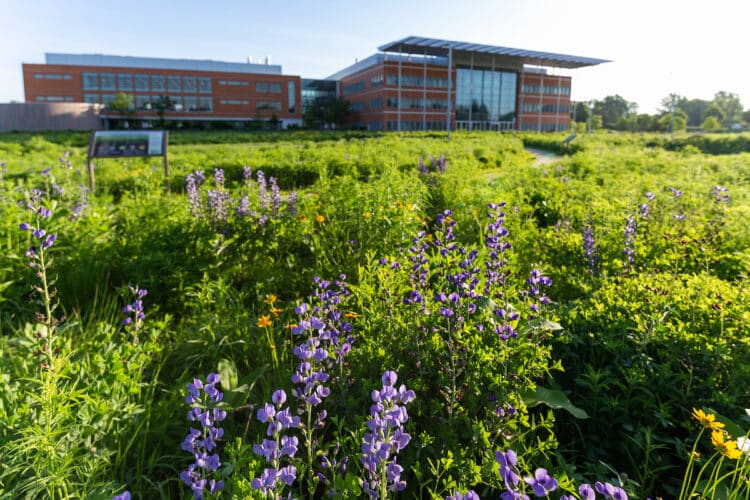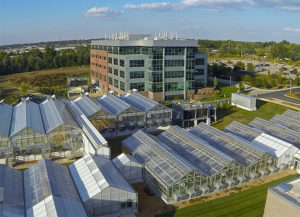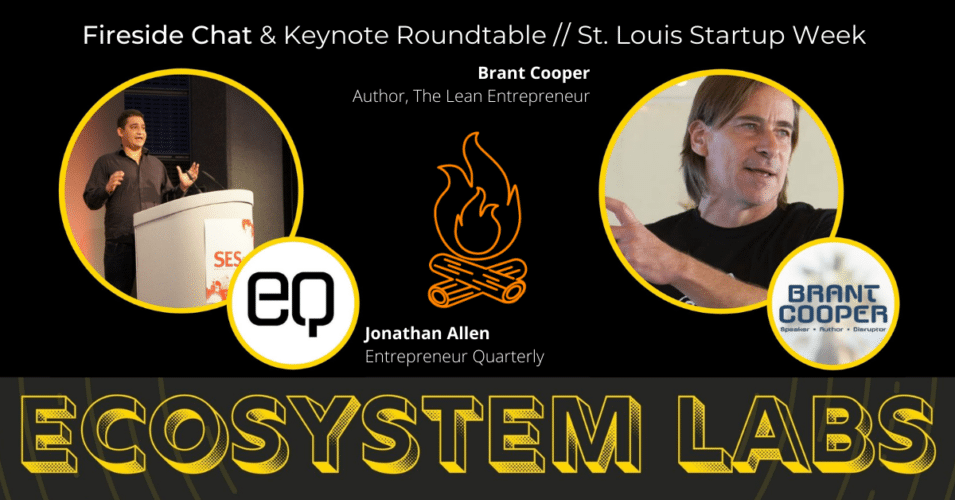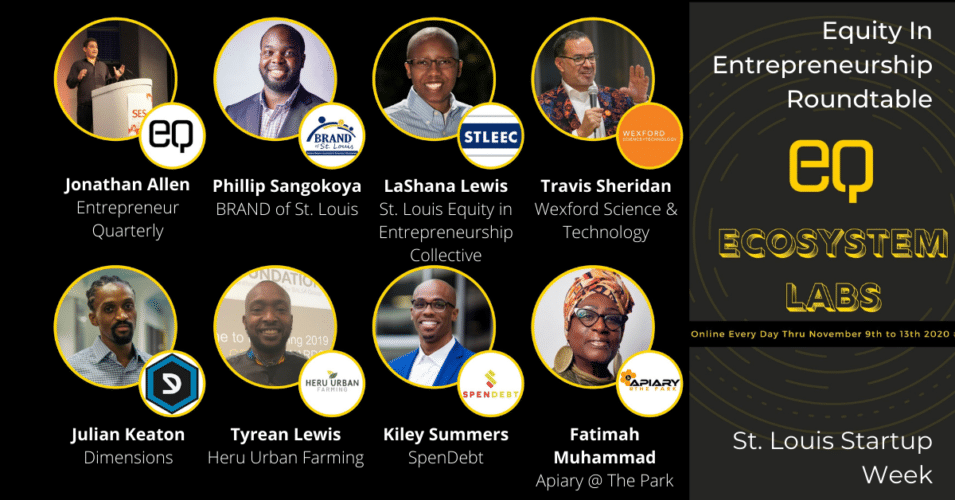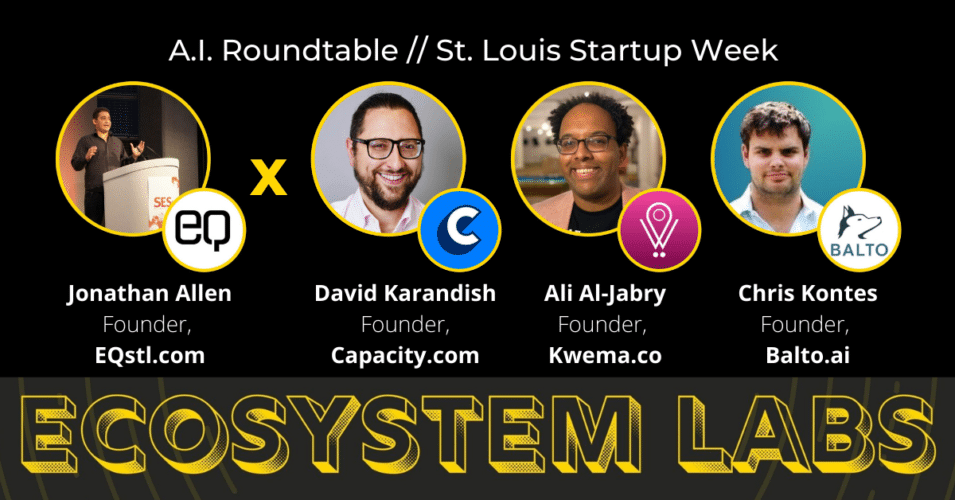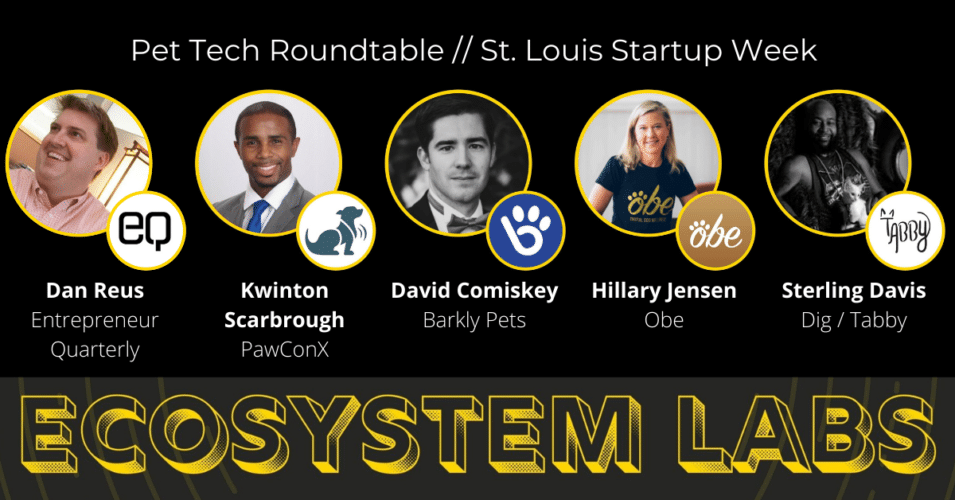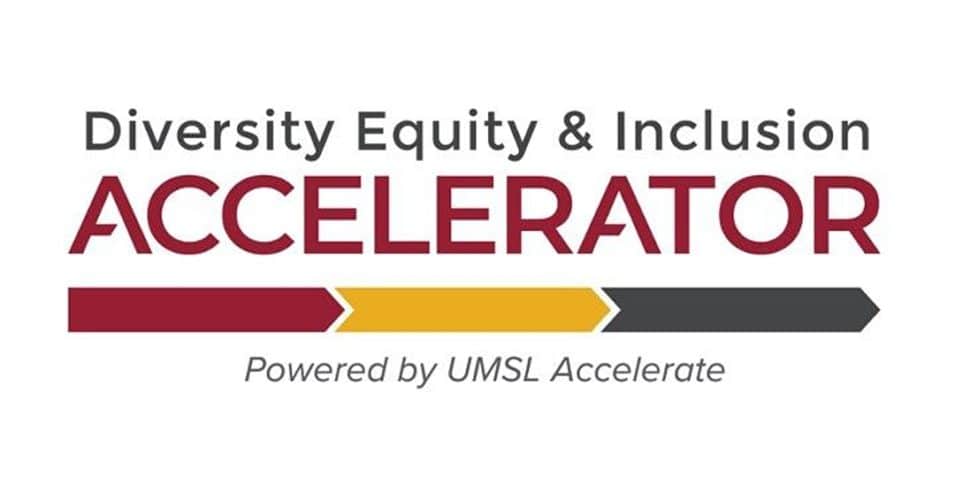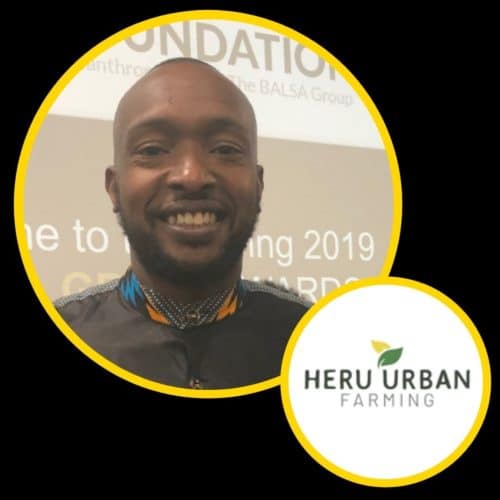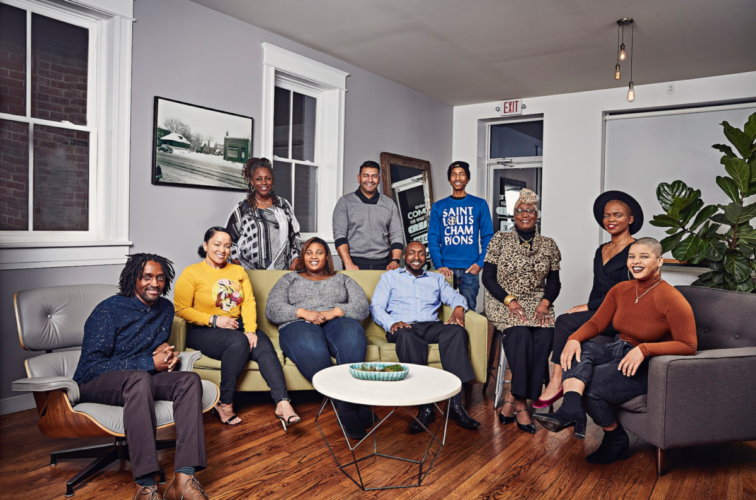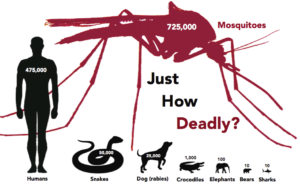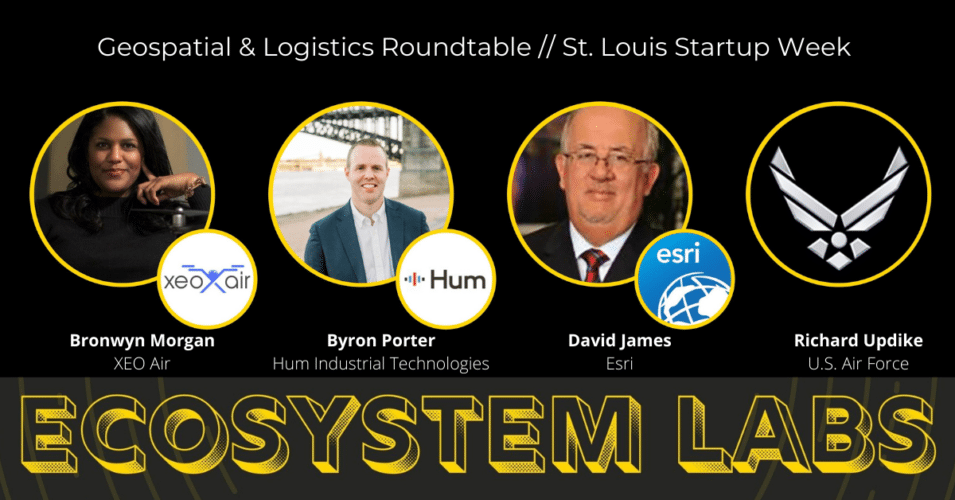
7 Insights From EQ’s Ag Innovation Roundtable at STL Startup Week
As part of STL Startup Week, EQ gathered together a panel of five experts from the Ag community, all with an interest in startups. This created a recipe of fresh ideas that shone a light on the challenges facing an industry which gets food from the fields and onto our plates at home.
Homegrown Ag Innovation in St. Louis
So, what’s the secret to matching science with enterprise? What did our experts think were the keys to success? Read on to find out, or catch the entire discussion on YouTube:
1. Sustainability Means Opportunity (for AI, Robotics, Computer Vision and more)

Sharon Beberich who joined the startup community in St. Louis back in 2003 and has playing a leading role in organizations like Plastomics and Ag Innovation Showcase.
That means a need for less land use, less soil degradation, less chemistry, less water use, lower carbon emissions and less labor, she says. Sharon served as a CEO in the corporate world and now has her own company, Saber Consulting, working with start-up companies in food and agriculture.
She believes there are big opportunities for St Louis startups. That’s because, in order to achieve these goals, there will be a need for things like artificial intelligence, data analytics, robotics, sensors, imagery software and biologics.
2. Wearables Are Making Animal Science More Effective

Coming from a family of farmers, Libby had observed that the distances that calving cows can roam and the time it can take to reach them can have serious consequences. Around 10 percent of calves can be lost at birth.
When cows are almost ready to calf, their behavior alters. Fardis is developing technology that alerts farmers to these behavioral changes in order to give them the time they need to reach the cow and help out, if necessary.
3. Science Needs Entrepreneurship

After selling a highly successful delivery company which he started up, he teamed up with Barry Goldman, his Chief Scientific Officer. His company, which now employs thirteen people, acquires ‘good’ microbes from the soil that can be used to develop sustainable bioproducts across the agriculture industry.
Finding microbes that can help to kill mosquitos is an example of the type of work Charlie and team carry out, work which he believes is essential for a sustainable ecosystem.
4. It’s Not Only Tech Entrepreneurs Who Launch Multi-million Dollar Startups From Their Garage

She believes these types of relationships can happen by chance, but what she is trying to do through her work is to act as a facilitator. Her focus is on inspiring a culture of entrepreneurship and she wants to get scientists thinking earlier about the end game and the possibilities for commercialization.
Stephanie cites Benson Hill as an example of a true success story. The company literally started out in a closet, but now employs hundreds of people and has raised millions of dollars to help in its quest to ensure better food for all.
“They chose very deliberately to make their headquarters here in St. Louis because of the resources available and the access to core facilities,” explains Stephanie.
5. Customer Demands Drive Ag Innovation

Tyrean is living proof of a trend to meet new consumer demands in the food world. He’s an urban farmer in the heart of St. Louis, and has seized on a gap in the market by providing fresh, nutritious, and great-tasting produce to people who may have difficulty accessing healthier food options in the city.
“People want local produce. They want things that have flavor,” Sharon adds, “They want plant based protein and they want a reduction of waste in the food stream.”
6. Tops Tips for Budding Entrepreneurs
So, you’ve got a great idea for a new agricultural tool, right? What do you need to get the concept from the drawing board and into a commercial setting?
Here’s what the panel recommends:
- Network by hiring co-working space (when the pandemic ends).
- Have a ‘minimum viable product’ at the ready to present to would-be stakeholders.
- Be able to provide proof that your product actually works.
- Be prepared to back up your claims with evidence.
- Communicate with people like farmers who may ultimately benefit from the product.
- Take advantage of the array of potential funders in St. Louis.
7. A Diverse Range of Opportunities Await
One successful business can throw up the need for more new businesses to support it.
“AgTech does not have to be a phone app. It does not have to live in the cloud. It does not have to be some fancy thing. Agriculture is a great landing spot for all different kinds of people,” maintains Stephanie.
A final word of encouragement from Sharon, “I think the entrepreneurial community here in St. Louis can make a global impact. So, for all the entrepreneurs out there, I just want to encourage you to keep trying. There’s a support system here for you.”

